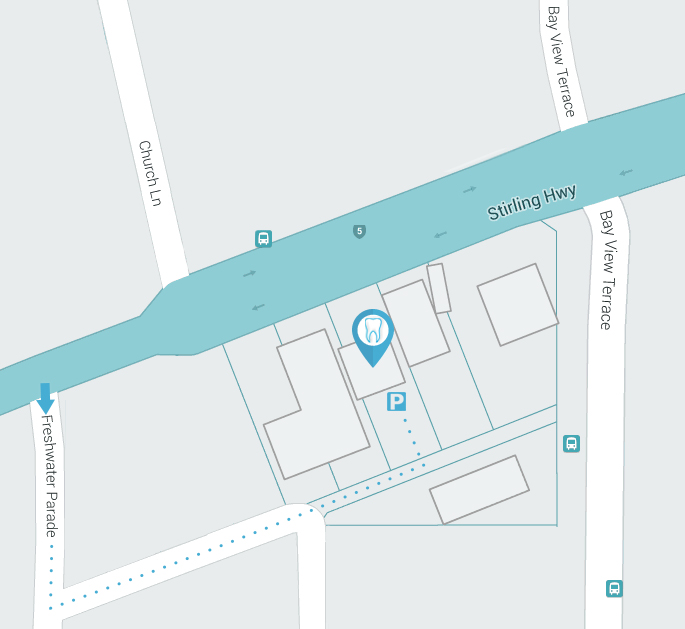
Looking after your teeth during a COVID-19 lockdown.
Are you not able to visit the dentist because of a COVID-19 lockdown? Should you be cancelling your routine dental appointments because of the pandemic? What happens if you have an emergency?
Here are some answers to these questions:
What Dentistry services are currently available?
In Perth, Western Australia, routine dental treatments are now available again and that has been the case for about 10 months. After 6/2/2021; there are plans for this to continue.
What is the risk of catching coronavirus at the dentist?
Although some people think that going to the dentist is going to put you at higher risk of contracting Covid-19, it has been found in the US that less than 1% of dentists tested positive.
This appears to be because dentist’s routine attention to high quality infection control is almost considered second nature.
A heightened potential risk of coronavirus transmission can occur when using dental drills or ultrasonics. However, these can be minimized by using rubber dams or by using alternative techniques like hand scaling during hygiene appointments.
How do dentists adapt during lockdown?
The dental profession is still adapting to the procedures as more becomes known about the virus. The last time we had a lockdown we were able to see patients for extractions, dental crowns, root canal treatments, emergency treatment, and jaw related issues. Some parts of the lockdown were stricter, so it is always best to be informed by your dentist regarding the best way forward.
A lot of treatments are usually completed with use of a rubber dam, as likelihood of transmission is minimised.
At times you may be asked to wait outside in your car to minimise the risk of contact with other patients.
Should you be in a high-risk category, you may be advised to stay at home or not attend your dental appointment.
So what can I do for my teeth while I can’t go to the dentist?
Most dental problems are preventable so brushing your teeth in the morning and at night for two to three minutes will generally be a great way to reduce tooth decay and gum disease.
As a dentist, I can safely say that most people brush their teeth for less than a minute.
What sort of toothpaste should I be using?
Most dentists will recommend that you use a toothpaste with fluoride and any toothpaste that includes this would generally be okay. Not only does it prevent tooth decay, but it slows down the progression of any existing decay.
There is an increase in use of natural toothpaste, which do not contain fluoride. And these may be sufficient after having a discussion with your dentist.
Is tap water better for my teeth?
Attempting to incorporate a steady intake of tap water into your daily routine gives long-term health benefits to your teeth.
This is because fluoride is usually included in very small amounts in your tap water. If you do not like the taste of tap water fear not, you can use it in your foods while you’re cooking with it.
What can I do for my gums that are bleeding?
A lot of dentists around the world have reported that gum disease has typically gotten worse in the months between the first lockdown and practices reopening. It is a good reminder that gum disease can worsen quite quickly. If you are prone to getting gum disease it is highly important that you brush and floss and keep an update on when practices will reopen so that you can book in your next dental appointment.
What constitutes a dental emergency?
An urgent dental appointment could include facial swelling extending to the eye on neck, bleeding after an extraction that doesn’t stop, toothache that prevents eating or sleeping, trauma that results in bleeding or fracturing of teeth, and sometimes temporomandibular joint issues.
The best thing to do is call us on 9284 2995. To see if you need to come in for your dental emergency.
Some advice for when we are in lockdown.
Lockdown can be a recipe for snacking but please be conscious that a lot of sugar can have a negative effect on your teeth.
If you want to have sweet foods, please have them straight after dinner or after lunch as this is the safest way to enjoy your treats. Another thing that you may consider doing is brushing your teeth afterwards (especially if your desserts are sticky). Chewing gum can be great too and maintain your hydration levels as saliva has an important role to play in your decay control.
One of the most common problems that I saw in last year’s lockdown was temporomandibular joint issues and clenching due to these stressful times. I’ve caught myself clenching on several occasions and I’m aware that a lot of people do that without even noticing.
Being aware that you’re clenching is the first step. And taking a moment to unwind, relax your tongue and muscles will all help. You may even consider using a hot compress on your jaw, which will help soothe and tired muscles.
Have an emergency kit ready.
It is sensible to have some form of painkillers at home such as paracetamol or Ibuprofen. These are all very effective in reducing dental pain and may be needed if you’re filling falls out or you have a dental emergency.











 .
.


